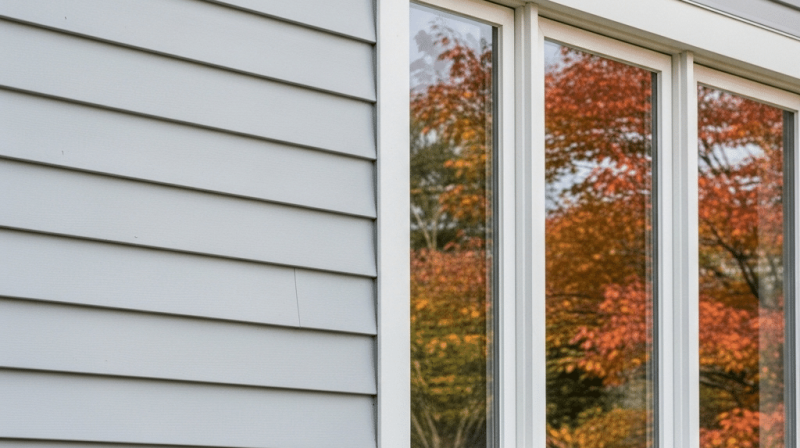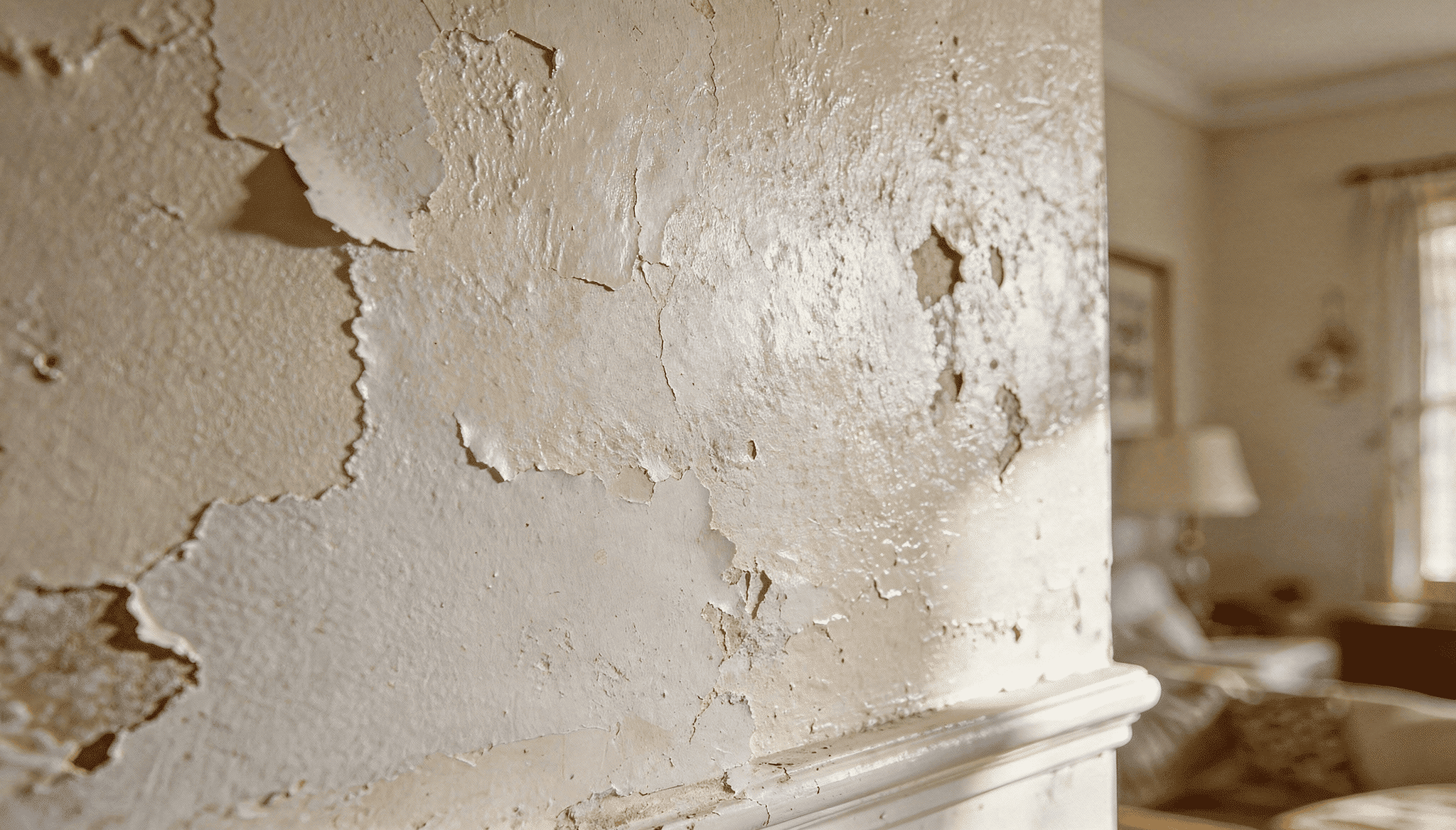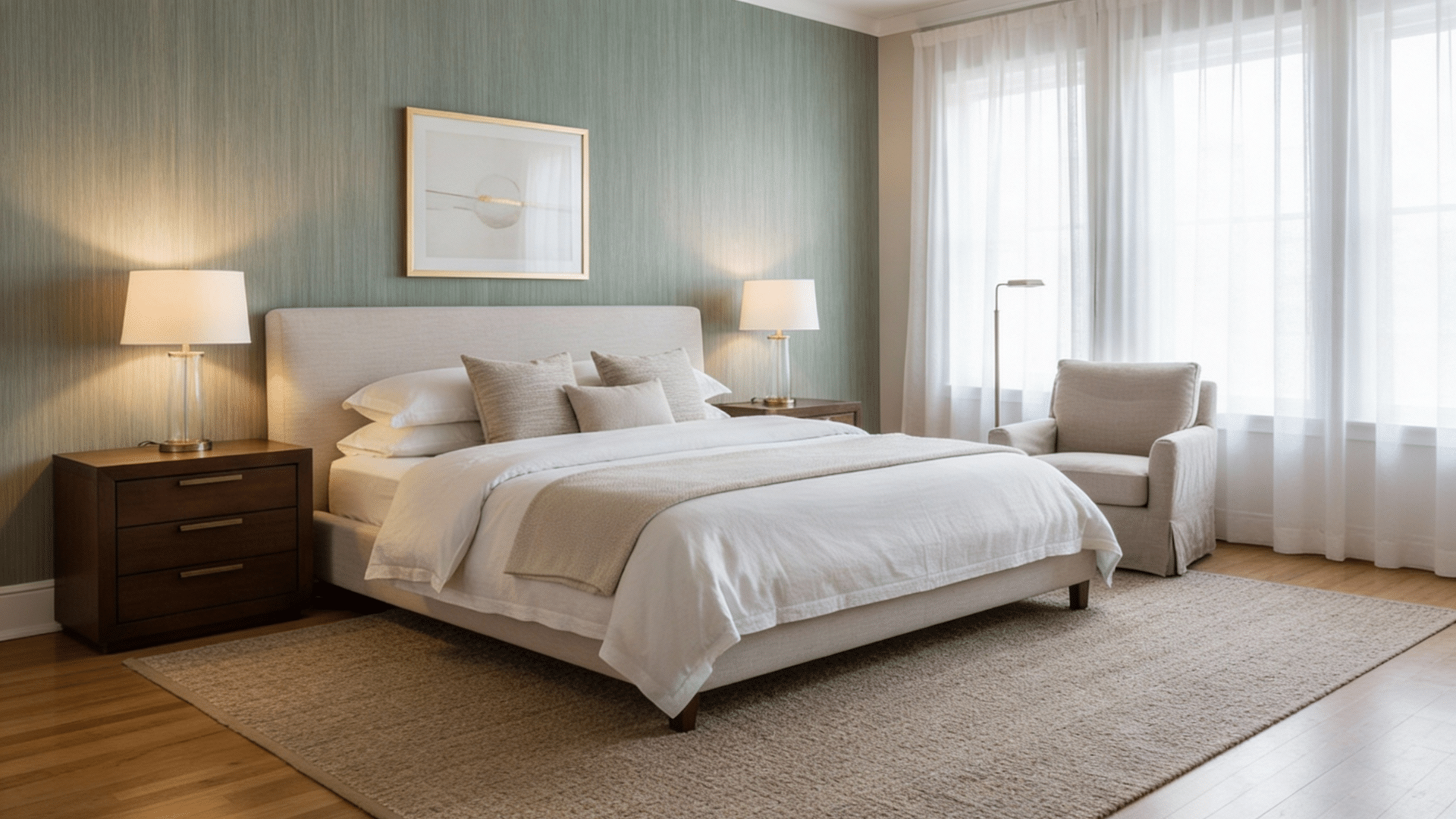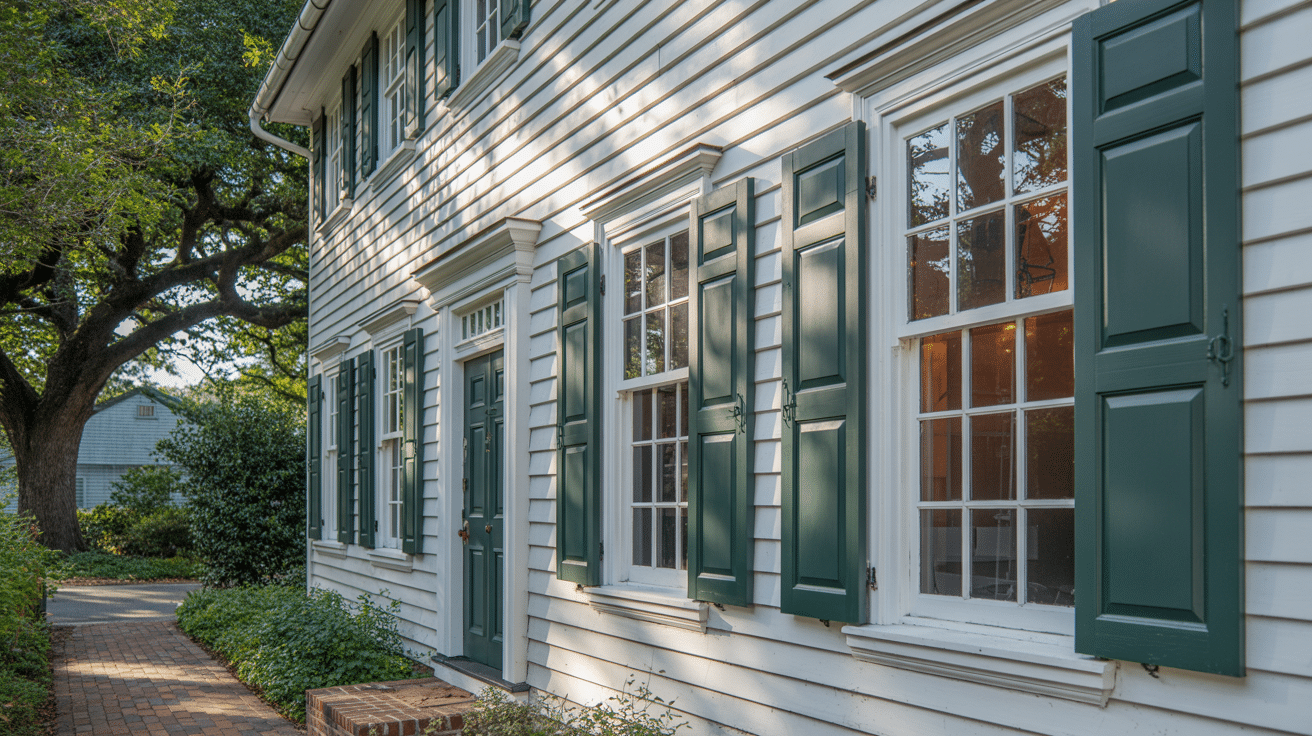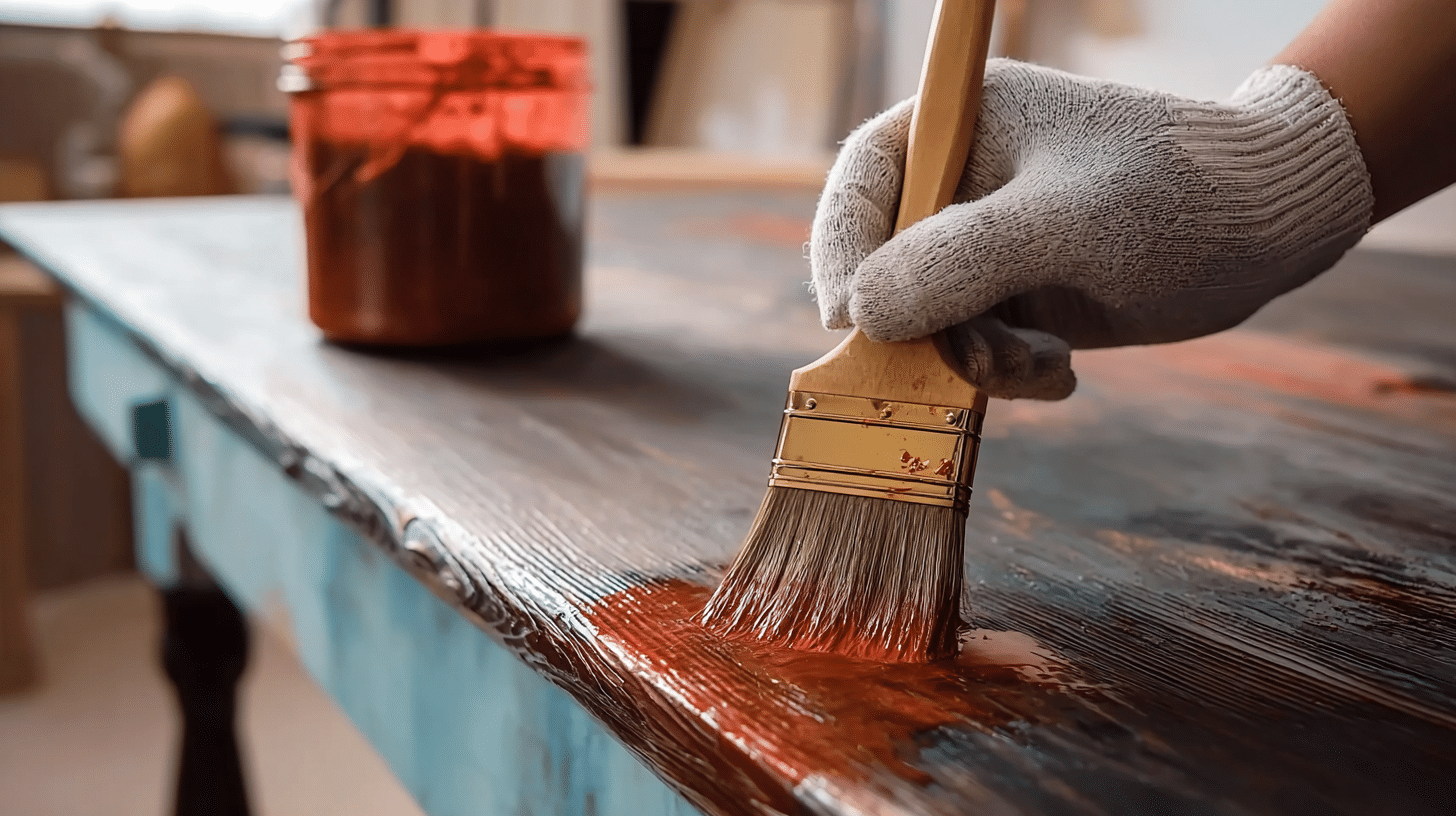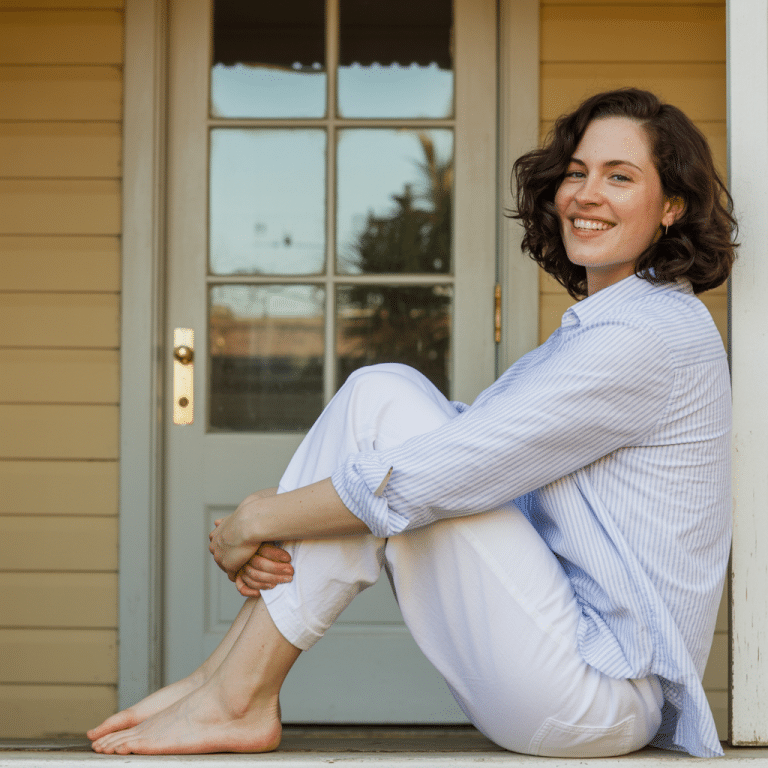I get it, you want your home to look great without breaking the bank or spending every weekend on maintenance.
Vinyl siding checks both boxes perfectly. It’s affordable, durable, and comes in colors that won’t fade after two summers.
Not all vinyl siding is created equal. Some brands last decades while others start warping within five years. I’ve seen homeowners make costly mistakes by choosing the wrong manufacturer.
In this blog post, you’ll learn which companies offer the most value, what features matter most, and how to spot quality materials that will keep your home looking fresh for years to come.
Vinyl Siding Installation Insights
Proper vinyl siding installation requires specific techniques and attention to detail. These professional insights help homeowners make informed decisions about their siding projects.
1. Tools required
You’ll need the following materials:
- Circular saw
- Chalk line
- Level
- Tape measure
- Hammer
- Specialty tools like a snap-lock punch
- Zip tool
2. Step-by-step breakdown of the vinyl siding installation process
- Prep Work: Remove old siding, check sheathing, install house wrap, and flashing.
- Starting Strip: Level installation of the bottom starter strip – this sets everything straight.
- First Course: Snap the first panel into the starter strip, nail every 16 inches in slot centers.
- Working Up: Each row overlaps the previous, leaving 1/4 inch expansion gaps at corners.
- Windows/Doors: Cut precise J-channel trim around all openings – measure twice, cut once.
- Top Course: Install under-sill trim, cut final row to fit perfectly under eaves.
I’ve seen DIYers nail panels too tightly (they need room to expand), forget to overlap joints correctly, and skip the house wrap entirely. These mistakes cause buckling, leaks, and premature failure.
3. Cost Differences Between DIY and Hiring a Pro
| Installation Method | Estimated Cost (per sq. ft.) | Key Considerations |
|---|---|---|
| DIY Installation | $3–$7 (materials only) | Saves $3–$5 in labor but risks costly mistakes without experience |
| Professional Install | $6–$12 (materials + labor) | Includes expert workmanship, warranties, insurance, and better material pricing |
Top Vinyl Siding Brands
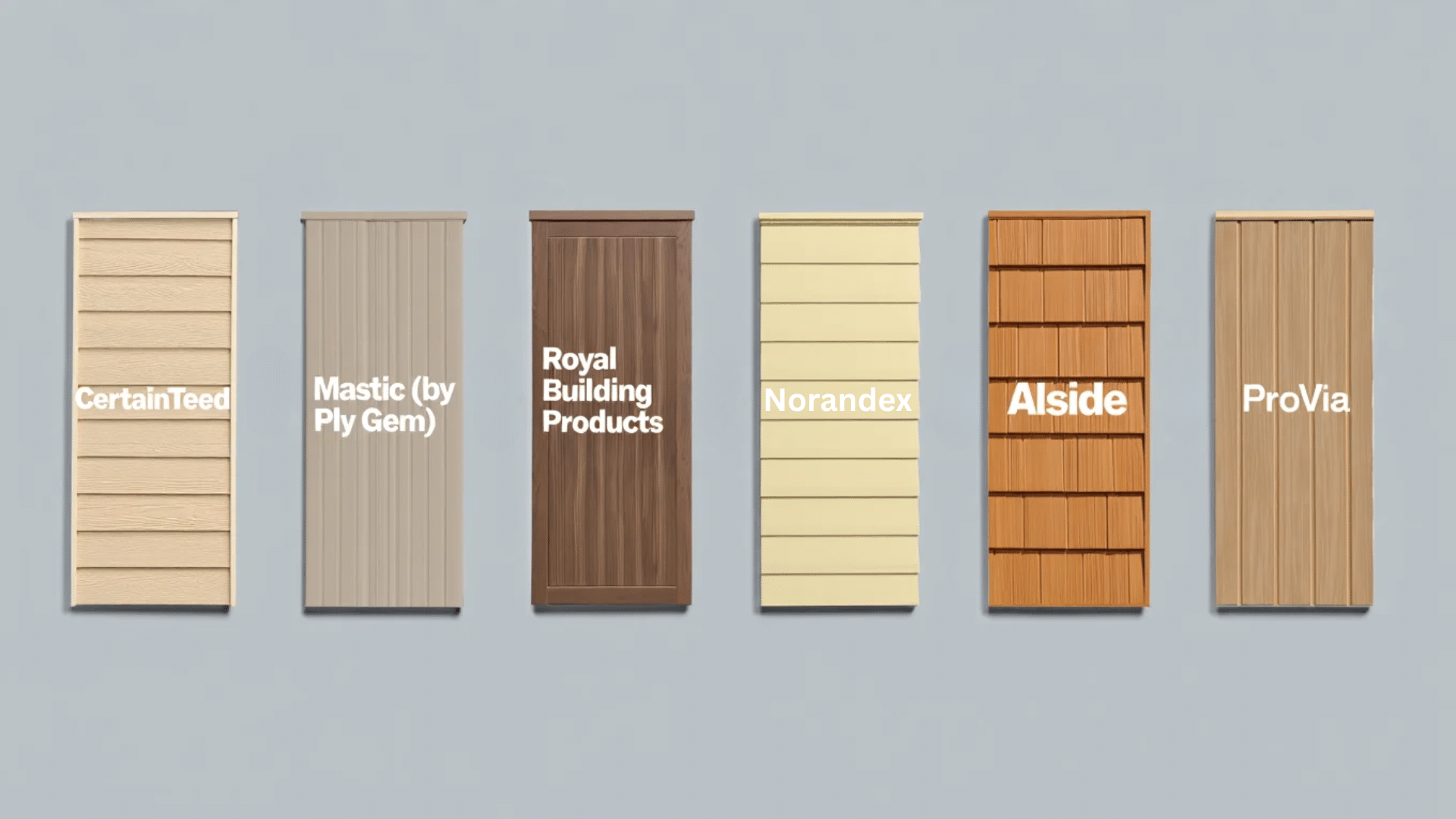
1. CertainTeed – Industry leader known for thick profiles and superior color technology. Their Monogram series sets the standard for premium residential siding.
2. Mastic (by Ply Gem) – Offers excellent value with solid construction and reliable warranties. Popular among contractors for consistent quality and easy installation.
3. Royal Building Products – Canadian company with impressive cold-weather performance. Their Celect composite siding combines vinyl benefits with wood-like texture.
4. Alside – Strong regional presence with good customer service. Their Charter Oak line provides attractive wood grain patterns at reasonable prices.
5. Norandex – Budget-friendly option that doesn’t sacrifice quality. Great choice for cost-conscious homeowners who want reliable performance without premium pricing.
6. ProVia – High-end manufacturer focusing on architectural details and custom colors. Their products may be more expensive, but they deliver exceptional curb appeal and durability.
Vinyl Siding Brand Compared
| Feature | CertainTeed | ProVia | Mastic | Royal | Alside | Norandex |
|---|---|---|---|---|---|---|
| Price Range | $4–8 per sq ft | $4–8 per sq ft | $3–6 per sq ft | $3–6 per sq ft | $3–6 per sq ft | $2–4 per sq ft |
| Warranty | 25–50 years | Lifetime (top lines) | 20–30 years | 20–30 years | 20–30 years | 15–25 years |
| Thickness | Up to .050+ in | Up to .050+ in | .042–.046 in | Up to .050+ in | .042–.046 in | Standard |
| Insulation | Excellent (foam-backed) | Excellent (foam-backed) | Good | Excellent (foam-backed) | Good | Basic |
| Color Retention | Advanced fade protection | Advanced fade protection | Moderate | ColorLast Tech | Moderate | Basic UV protection |
| Eco-Friendliness | Strong programs | Behind peers | Behind peers | Recycled materials leader | Some recycled use | Fair for price range |
Choosing the Right Shade That Complements
Choosing the right color for your home’s exterior goes beyond picking a favorite shade.
Understanding undertones, home styles, and regional trends ensures a harmonious look that enhances curb appeal and value.
Undertones and Home Styles
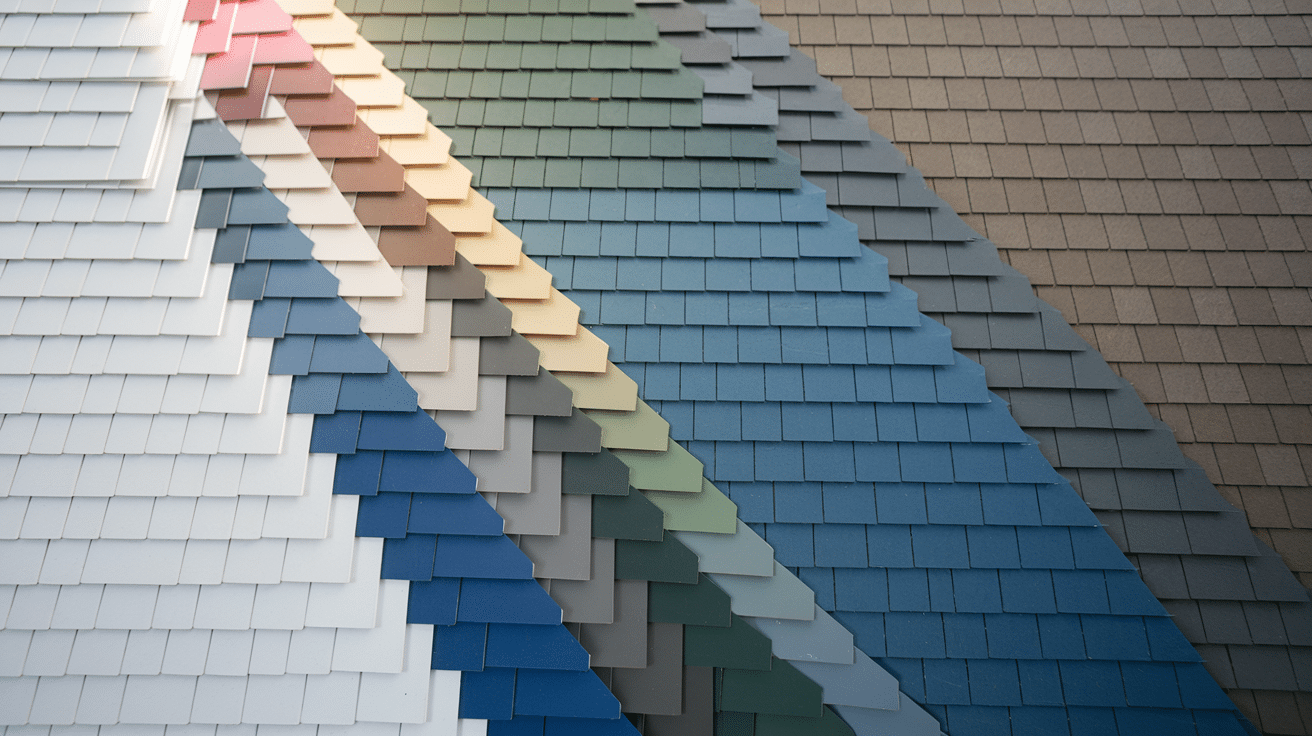
I’ve made the mistake of picking colors without considering undertones. That “perfect” beige turned pink at sunset, and my gray looked purple in morning light.
Traditional homes work best with warm undertones, while modern styles shine with cool grays and crisp whites.
Classic vs. Bold
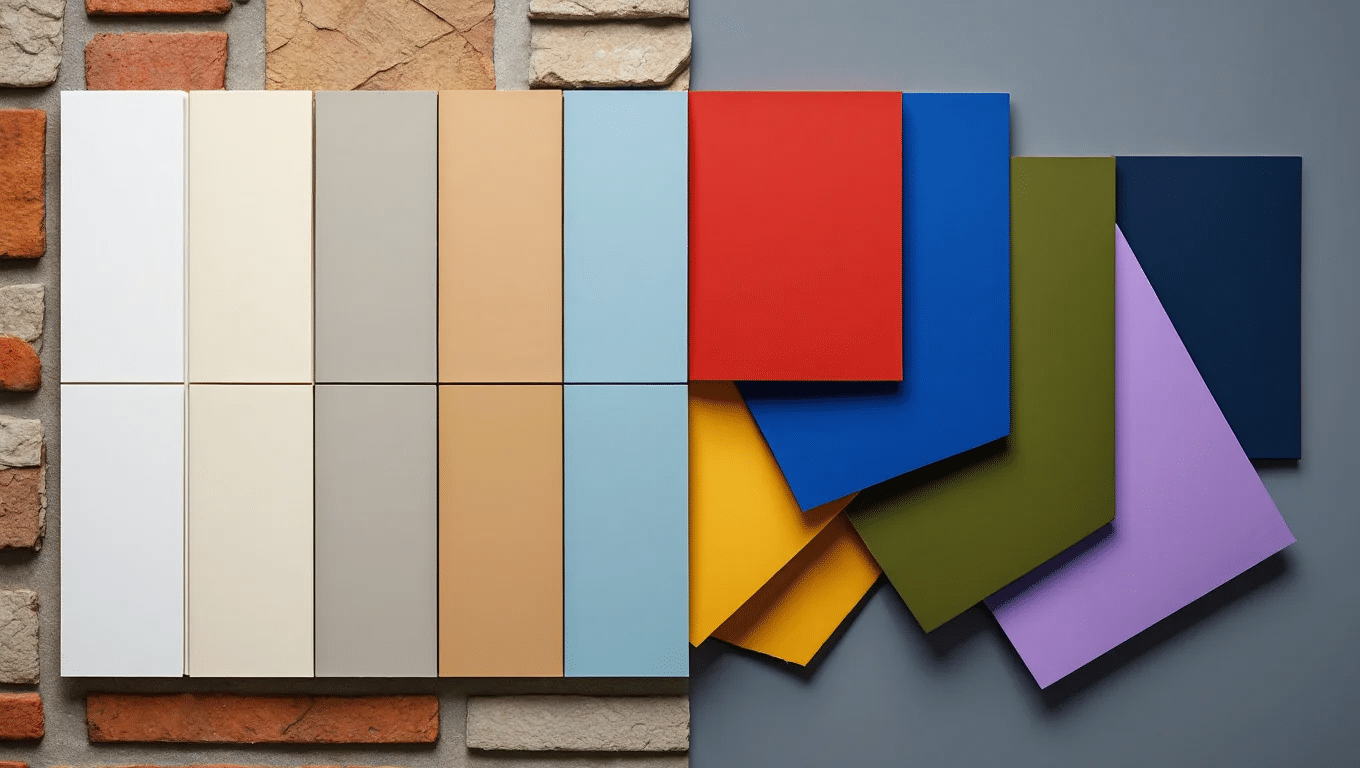
Safe colors like white, cream, and light gray never go out of style and appeal to most buyers. But I’ve seen bold choices work beautifully on the right homes.
Navy blue looks stunning on colonials, while sage green complements craftsman styles. Save bold colors for accent areas if you’re unsure about a full-house commitment.
Regional Color Trends (coastal vs. Suburban)
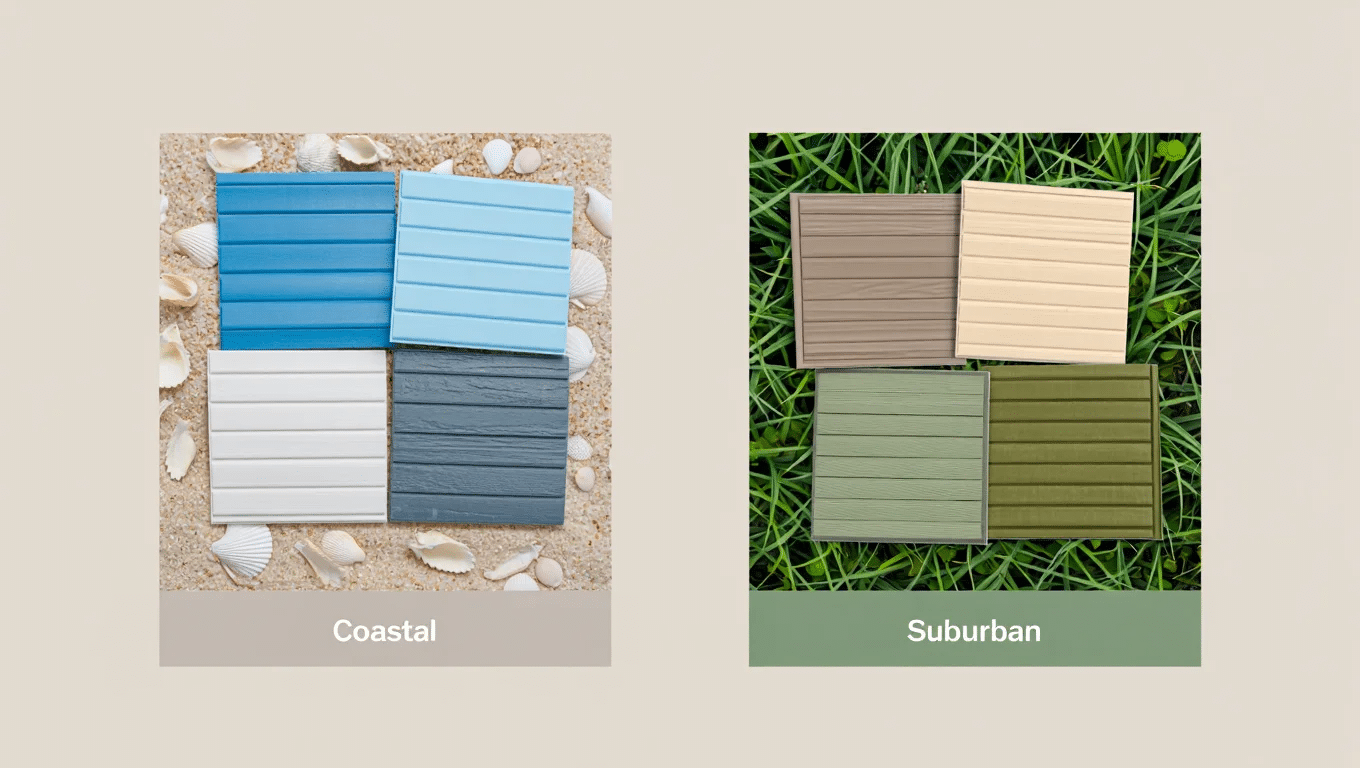
Living near the coast, I notice blues and weathered grays dominate here. They match the ocean vibe and hide salt air effects.
Suburban areas favor warmer tones like tan and cream that complement landscaping. Mountain regions often use deeper greens and browns that blend with forest surroundings.
Vinyl Siding Color Ideas Based on Brick/Roof Colors
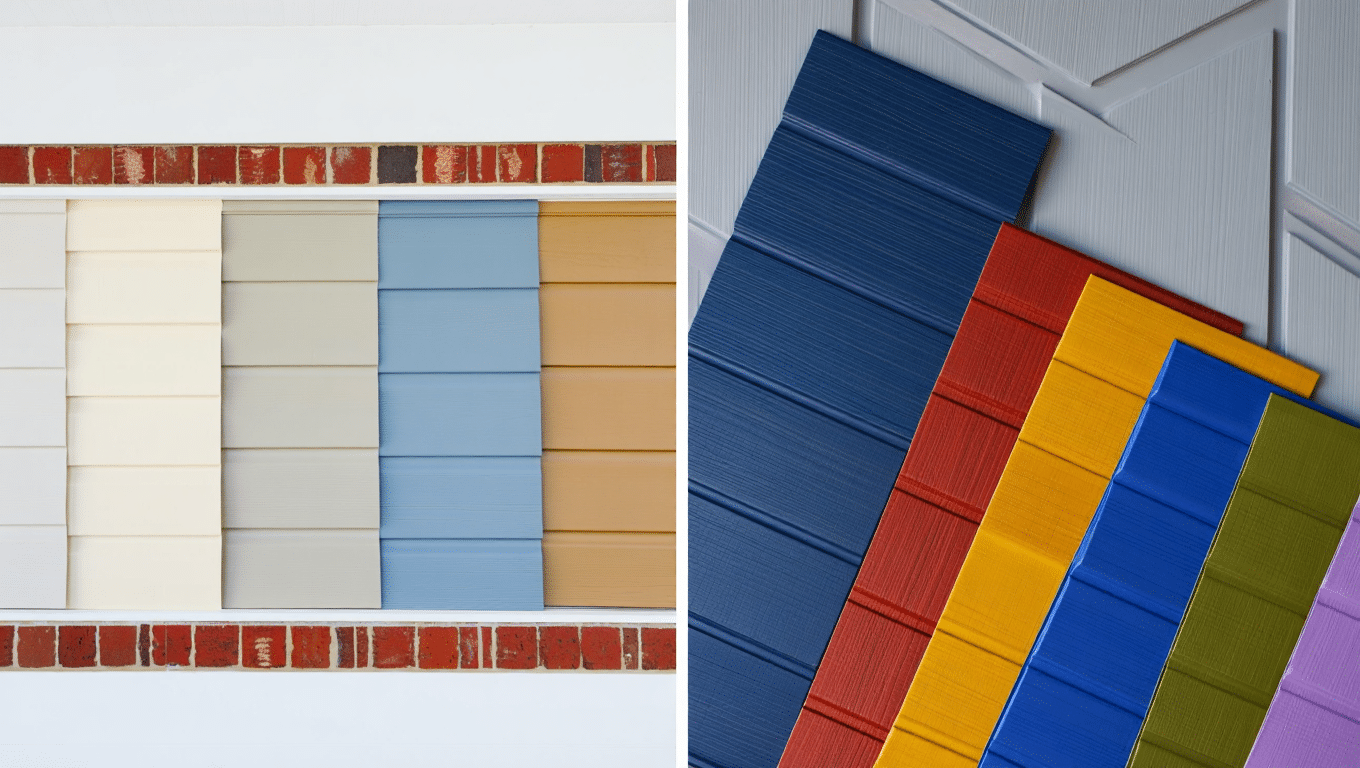
Red brick pairs beautifully with cream, gray, or sage siding. Orange brick works with warm whites and soft tans. For gray roofs, I recommend cooler siding tones.
Brown roofs complement warm colors like beige and cream. Black roofs are flexible; they work with almost any siding color choice.
Tips for Choosing Vinyl Siding
Choosing vinyl siding means balancing climate durability, sun exposure, and local support.
Prioritize thicker panels (.042″ or more) for strength, select fade-resistant colors for sunny walls, and always factor in ongoing maintenance, even with “maintenance-free” claims
- Environmental factors drive material choices – Climate and sun exposure determine which siding performs best. Choose brands with proven records in your weather conditions, and pick fade-resistant options for south-facing walls that get heavy UV exposure.
- Local contractor support prevents future problems – Verify your chosen brand has certified installers and service reps nearby. Even quality siding fails without proper installation or available warranty support when issues arise.
- Focus on thickness over marketing features – Minimum .042-inch thickness prevents dents and a cheap appearance. Thinner materials dent easily regardless of special claims, while quality thickness provides lasting performance.
- Plan for ongoing maintenance costs – “Maintenance-free” siding still needs annual washing, caulking checks, and occasional repairs. Factor these realistic ownership costs into your budget planning.
To Conclude
After researching dozens of manufacturers and talking to countless homeowners, I’m convinced that choosing the best vinyl siding is one of the smartest investments you can make.
Start by getting quotes from certified installers for your top two brand choices.
Compare not just prices, but installation quality and warranty service too.
Have you worked with any of these vinyl siding brands before? I’d love to hear about your experience in the comments below; homeowner feedback helps everyone make better choices.


